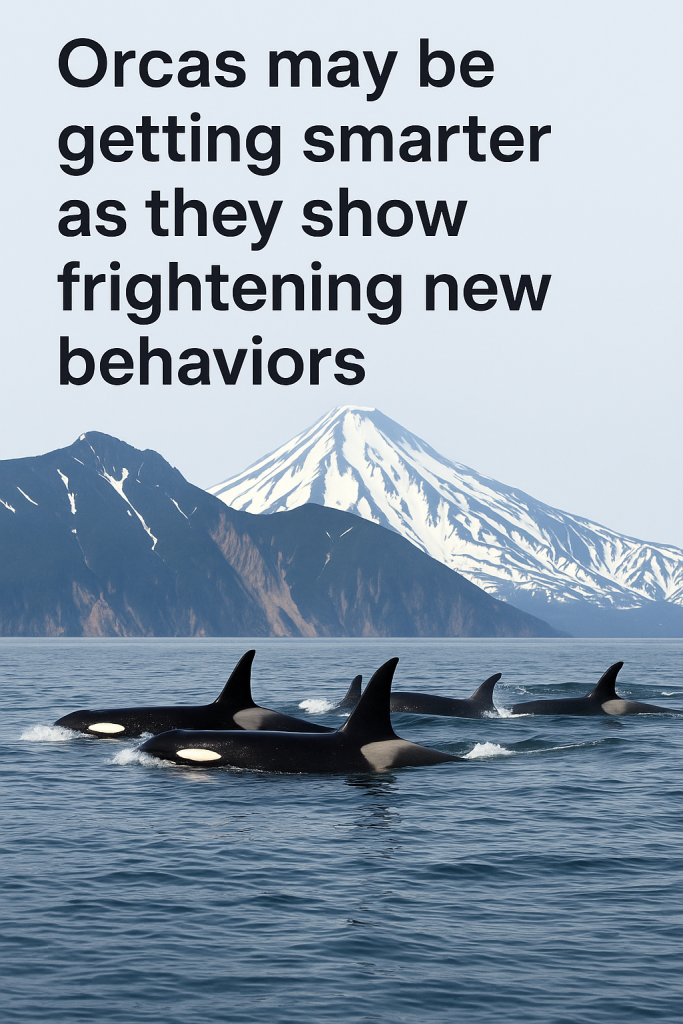Orcas, also known as killer whales, have long fascinated researchers and ocean enthusiasts alike with their sophisticated social structures and remarkable hunting skills. However, a wave of new scientific observations in 2024 is raising eyebrows: these apex predators appear to be exhibiting unprecedented and troubling behaviors that suggest their intelligence could be evolving in unexpected ways.
Recent studies into orca populations across the Pacific Northwest and other key habitats reveal that these creatures are not only adapting to environmental pressures but also developing complex behaviors that some scientists describe as frightening. Such behaviors include innovative hunting techniques, increased territorial aggression, and unexpected interactions with human vessels and coastal communities.
One particularly striking finding is orcas’ apparent ability to coordinate in ways that surpass previous understandings of their cognitive capabilities. Researchers have documented orcas employing elaborate hunting strategies involving deception and collaboration, such as intentionally beaching themselves temporarily to catch prey stranded onshore, then signaling pod members for assistance.
These behaviors suggest orcas may be exhibiting higher-level problem solving and communication skills, not unlike what has been seen in terrestrial mammals known for their intelligence. Scientists theorize that growing environmental challenges—such as dwindling fish stocks and increasing human encroachment—could be driving orcas to adapt rapidly and develop smarter survival strategies.
Beyond hunting, the rise in aggressive interactions with boats has alarmed coastal communities and researchers. There have been reports of orcas deliberately ramming smaller vessels or blocking shipping traffic. While these incidents remain rare, their increase is significant, raising concerns about the future coexistence of humans and these powerful marine mammals. Experts believe this behavior may reflect heightened territoriality or frustration linked to environmental stressors.
Another new behavioral pattern seen in some pods is increased social complexity and cultural transmission. Orcas appear to be learning novel behaviors from each other within and across pods, a phenomenon that indicates advanced cognitive abilities. This cultural learning could be an adaptive response to rapidly changing ocean conditions but also highlights the sophistication of orca intelligence.
Scientists are also investigating the role of orca communication in these changes. Enhanced vocalizations and complex acoustic signaling have been noted, suggesting that orcas might be improving their ways of sharing information — a hallmark of heightened intelligence in animal species.
While these developments are intriguing from a scientific perspective, the implications are layered with challenges. The potential increase in orca intelligence and behavioral complexity poses new questions about how humans should approach conservation, marine traffic regulation, and interaction with wild marine life.
Researchers emphasize the importance of expanding monitoring efforts and understanding the environmental triggers behind these behaviors. Protecting orca habitats and mitigating human impacts will be crucial to ensuring these extraordinary animals thrive without conflicts escalating.
In essence, the ocean’s top predators may be growing smarter, adapting in ways that blur the lines between instinct and intellect. But as orcas evolve, so too must our strategies for coexistence, or risk facing an uncertain future where human and marine worlds collide in unforeseen fashion.



